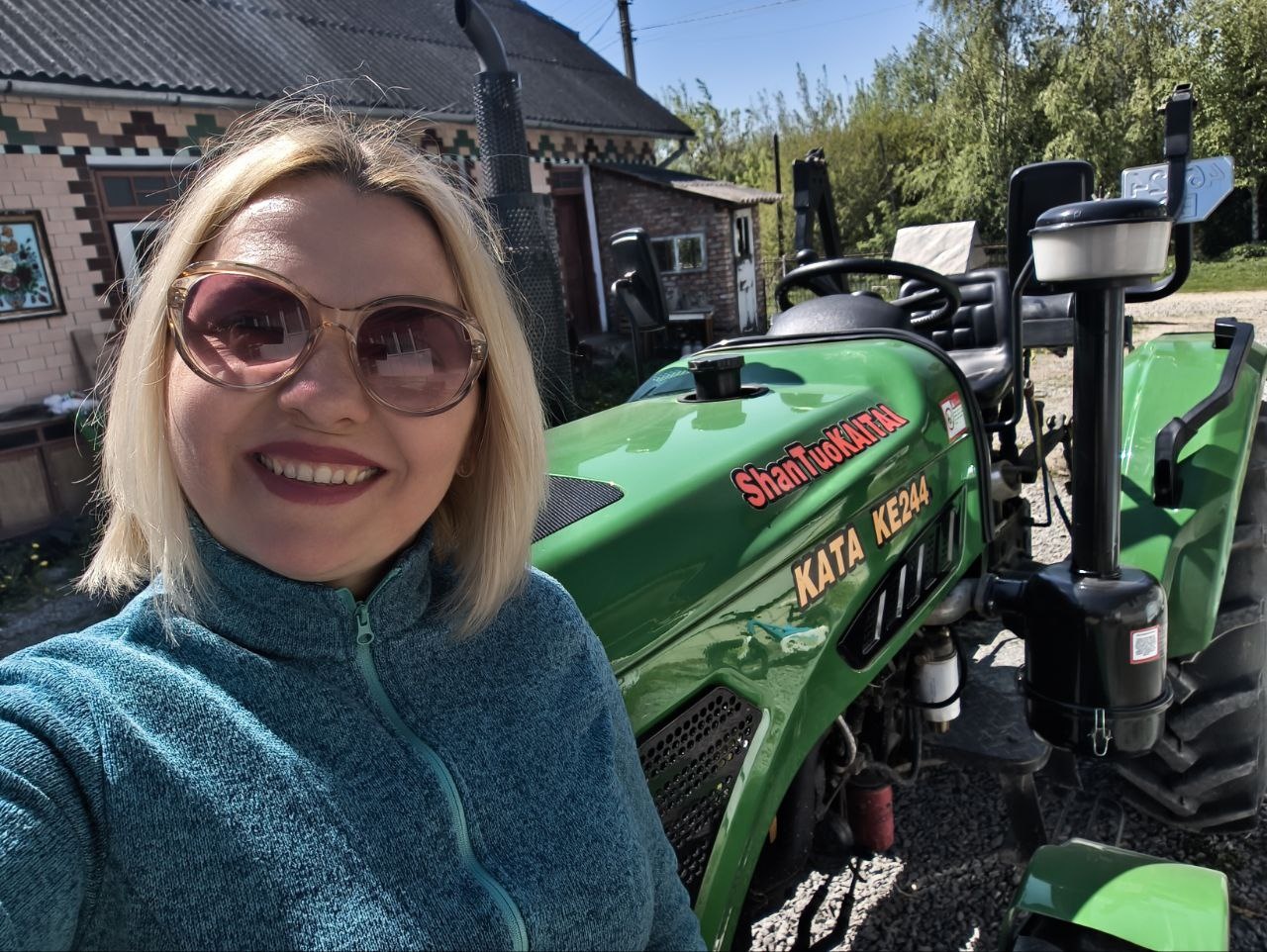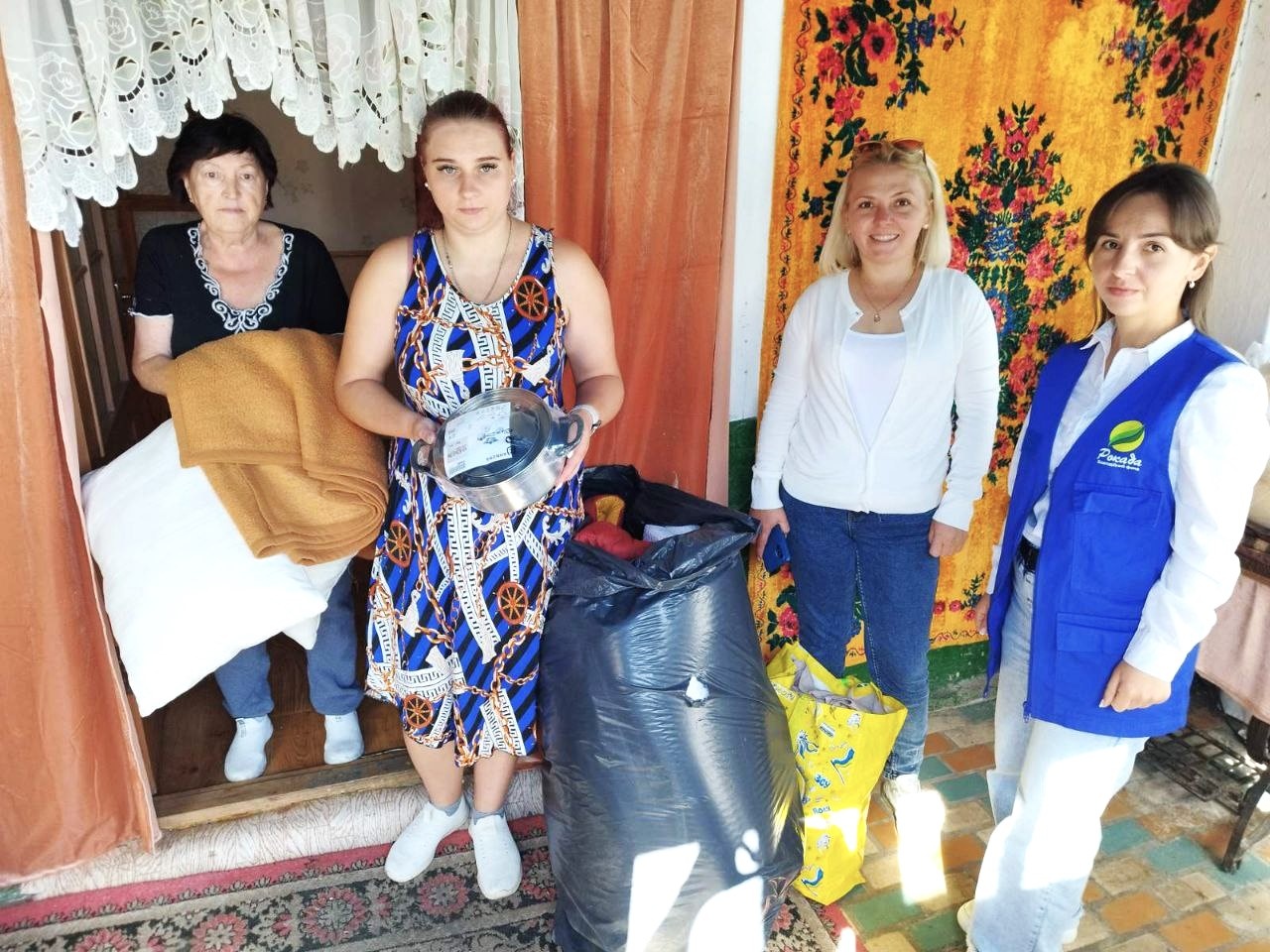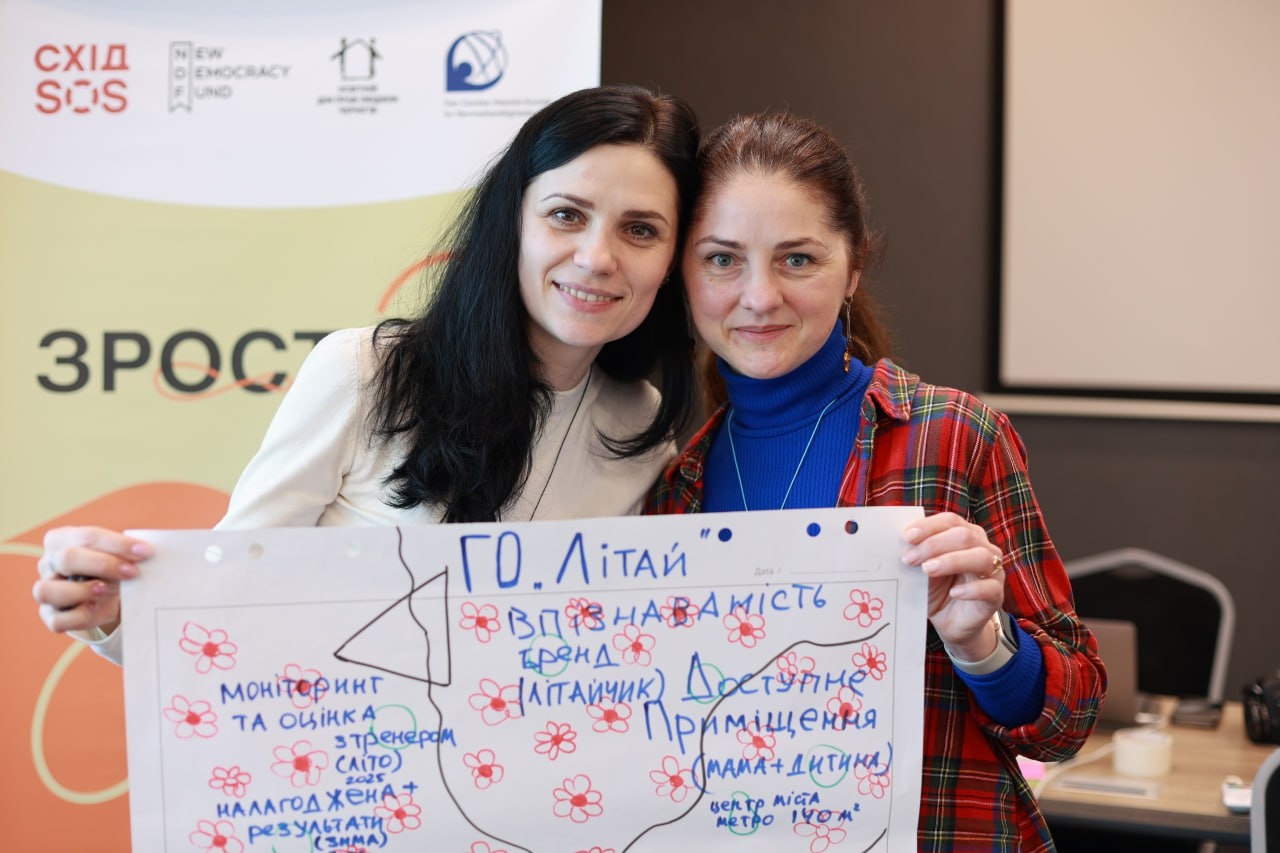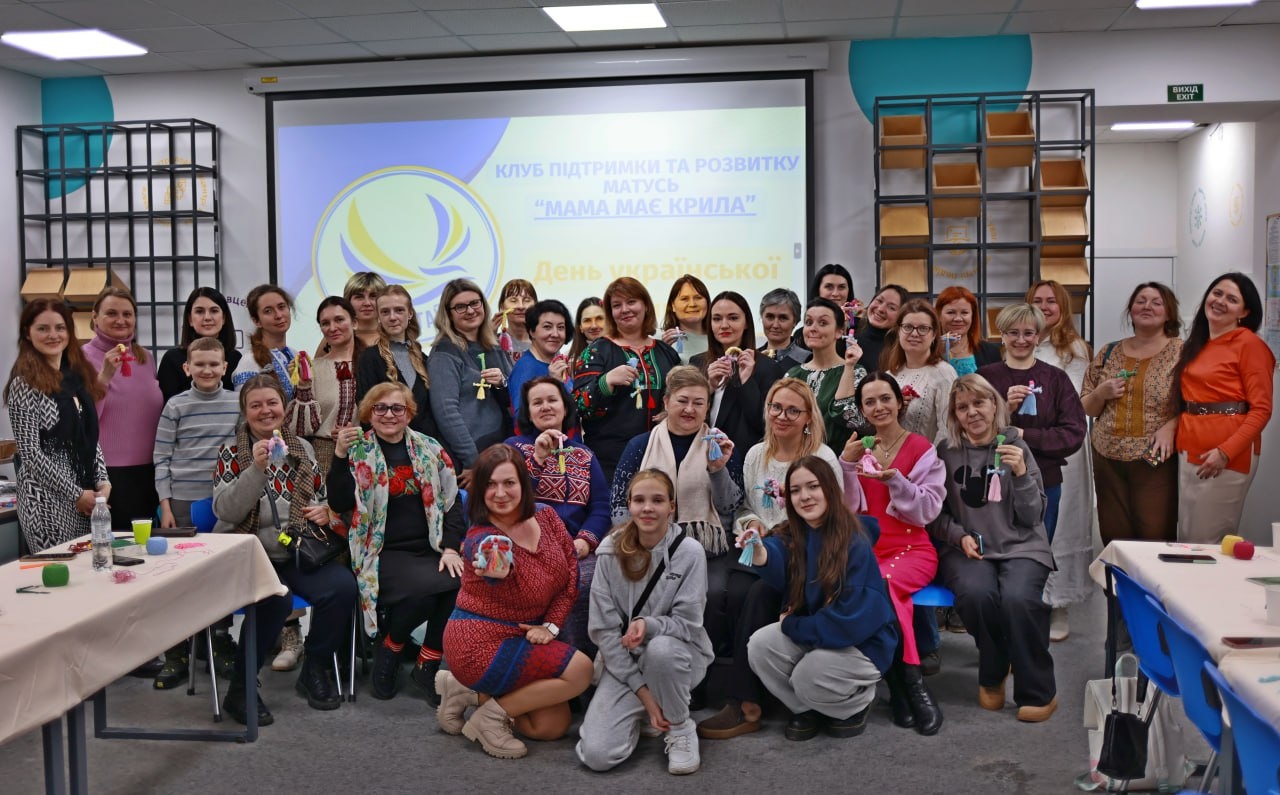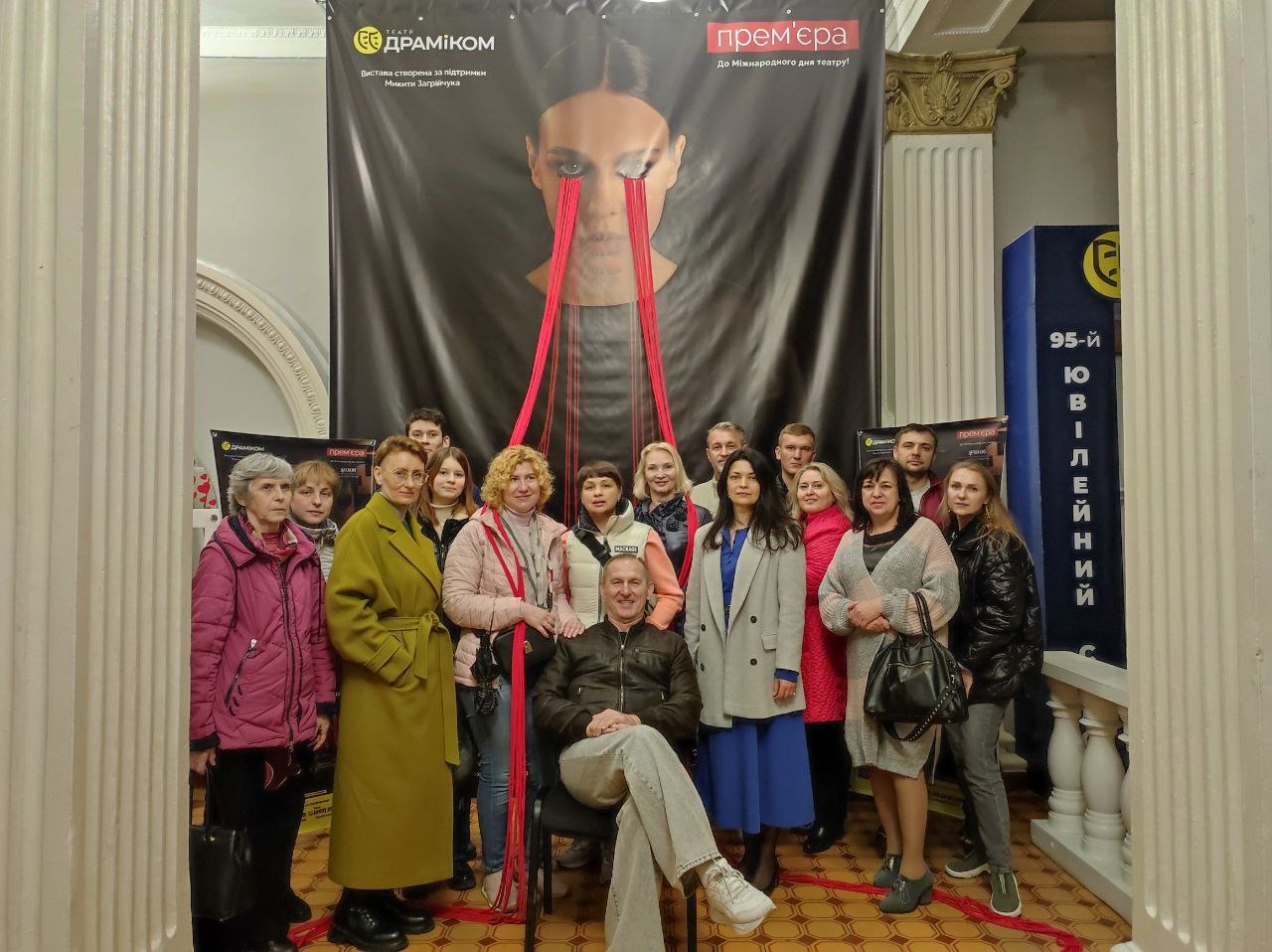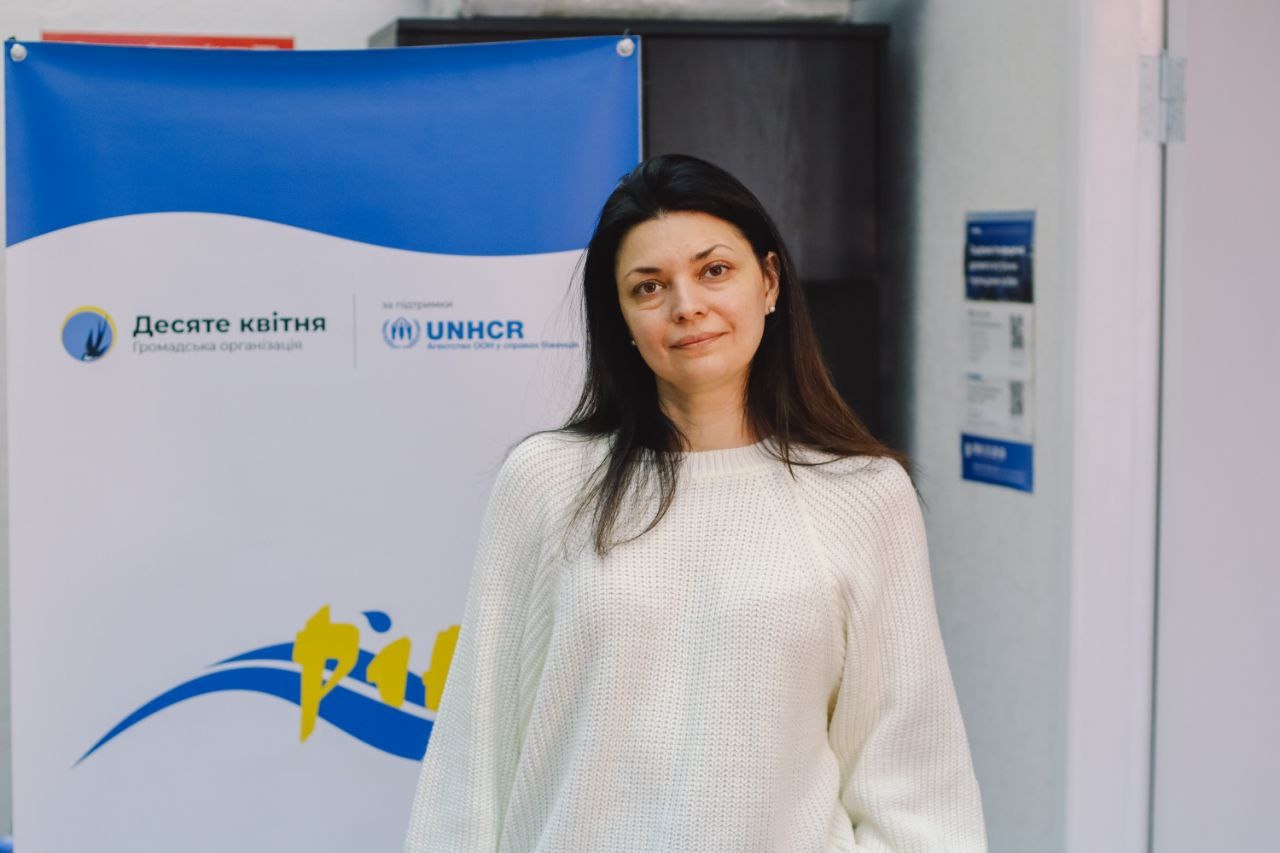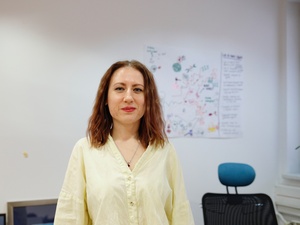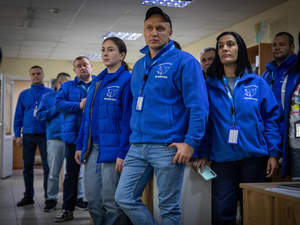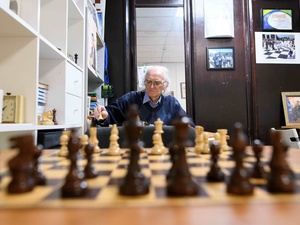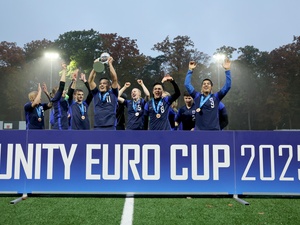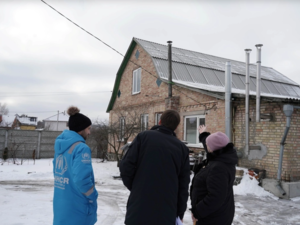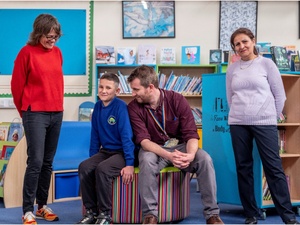One tractor, a pair of wings and a language club: how displaced women leaders in Ukraine help their communities stay strong and united
One tractor, a pair of wings and a language club: how displaced women leaders in Ukraine help their communities stay strong and united

Traditional Ukrainian Motanka dolls produced by the participants of a workshop organized by the NGO Litay, for mothers of children with disabilities.
Of the some 3.7 million people are internally displaced in Ukraine due to the full-scale Russian invasion, 57 per cent are women, according to UN estimates. Many have fled their homes more than once, often with small children and only the essentials packed. But for some, displacement has become a catalyst – not only for survival, but for leadership, solidarity, and change.
Many displaced women have founded or joined grassroots initiatives or community organizations that support others in similar situations. Here, they are part of the critical civil society response that contributes immensely to both humanitarian and recovery efforts in the country. Since 2022, UNHCR, the UN Refugee Agency, has supported some 550 community initiatives across Ukraine – 334 of them are led by women. Meet three of them here:
Alina: From Crimea to Kharkiv and Ternopil, planting seeds of resilience
In the last 11 years, Alina had to pack up her life and flee twice. In 2014, when the Russian Federation illegally annexed Crimea, she left the city of Yalta together with her husband and moved to Kharkiv, the second largest city of Ukraine with a vibrant atmosphere and filled with opportunities.
At the start of the full-scale Russian invasion in 2022, Russian Armed Forces almost encircled Kharkiv, inflicting heavy damage to civilian infrastructure and causing waves of displacement. With missiles falling around them, the choice was clear for Alina, who then had a two-and-a-half-year-old son, Daniil – to flee to save the family’s lives. They fled to a small village in Ternopil region in western Ukraine where they had some extended relatives.
“In 2014 and 2022, when we were fleeing, we knew that the most precious thing packed in our car was our family. We also knew that we would adapt and live through this. Just sitting and crying would be destructive behavior. Instead, I accepted that life will never be the same, and this helped me to move forward and to not look backward,” Alina recalls today.
Being twice displaced themselves, Alina and her husband founded the community organization FAINADIIA (“Fine Action”) which helps those forced to flee their homes find housing, social support, and integrate into the community.
The community organization helped to accommodate 18 families, including 56 children. In 2024, UNHCR’s NGO partner Medair provided Alina’s organization with a tractor and other agricultural equipment which they used to cultivate land and grow vegetables on the land plots of the houses, hosting displaced families. This is part of a social enterprise initiated by Alina to support people’s self-reliance and create job opportunities in the rural community.
Alina is also the Deputy Head of the local Council for Internally Displaced Persons (IDPs), which allows her to advocate for the interests of displaced persons and implement changes at the community level.
“I always dreamed of doing something meaningful for the community,” she says. “The war pushed me to discover what I am truly capable of. Now I dream of creating a space, where displaced people can receive needed services, including psychosocial support, and participate in activities that bring community together. There, they would also be able to find jobs, receive salaries and provide for their families.”
Valentyna: Lifting up mothers, one wing at a time
When Valentyna first fled Luhansk in 2014, her greatest concern was not just finding shelter—it was making sure her five-year-old son, Nazar, who has a disability, would be safe and supported. Alone in Kyiv with no network and limited services, she felt overwhelmed.
“I did not know a soul,” she says. “I needed to meet other women who understood what I was going through.”
Now Valentyna is the head of the NGO “Litay” (Fly), which she founded after Russia’s full-scale invasion in 2022 forced her family to flee again - this time to Lviv in western Ukraine. It became her mission to support other families who also had relatives with disabilities, to evacuate to a safer place. And this continued, after she later returned to Kyiv, where she gave birth to another son, Myron.
For Valentyna, the name of the organization is symbolic: “Displaced women raising a child with disability face many challenges. Our goal is to provide them with support that enables them to feel resourceful, inspired, and motivated to move forward. It is about giving wings and inspiration, and not giving up.”
In the last three years, Valentyna’s NGO has supported 200 women with various forms of assistance, including humanitarian and psychosocial aid, employment coaching, self-development trainings and organized inclusive events for parents and children.
“There are no perfect success stories. Having a child with a disability, the mother's life path is not easy and it remains so. But this path can be taken in different ways. In a depressed state, or you can realize that this is your life, and it is worth living. We are approached by mothers who ask to introduce them to other women who find themselves in similar circumstances. It is important for them to hear such stories, and it helps to feel that they are not alone,” says Valentyna.
Aina: Creating community through language and culture
Similar to Alina and Valentyna, the war started in 2014 for Aina, when it caught her in her home city Donetsk in eastern Ukraine. The family with three daughters first fled to Kramatorsk in the same region, with the hope that it would soon be possible to return.
“For those first eight years, I seemed to live on pause. I was waiting to return and thought that the moment would come, when everything would end, and there would be an opportunity to return to Donetsk that I still feel strongly connected to, and to start rebuilding both the buildings and the cultural environment.”
A philologist and culture lover, Aina started to give free Ukrainian language lessons – as the Russian language was commonly used in this part of the country. When the full-scale invasion forced her to flee again, from Kramatorsk under constant attack, to Dnipro, Aina continued the work, contributing to a volunteer course and creating an initiative group for displaced people who wanted to improve their Ukrainian language skills. Soon, she became a moderator of a language club “Rika” (River) founded by UNHCR’s NGO partner Tenth of April.
“At first, there were whole families who showed up in our classes: mothers, fathers, children, grandparents. Then they started bringing friends. There was a huge demand amongst Russian-speaking people to switch to Ukrainian,” Aina explains.
“The club also plays a significant integration role. Displaced people need to be in a circle with others who understand them, who have experienced a similar story and face similar challenges. Locals also join the events, and in this way, people have the opportunity to find a common language and talk about various social topics.”
Helping displaced people preserve or rediscover their cultural roots, Aina managed to create a network of like-minded people who visit theatres, exhibitions and other cultural events together.
“I know that many people whose cities were occupied and destroyed feel exactly like I did after being displaced for the first time – on hold. It is impossible to predict what happens next, and this is the advice I give them: do not put your life on pause,” Aina says.
***
In March 2025, UNHCR nominated Alina, Valentyna and Aina to represent Ukraine’s civil society in the 10-day long Open World Programme, funded by the U.S. Congressional Office for international leadership which connects delegates with their peers in the United States. Empowered by the rich experience, the delegates returned to Ukraine with a broader vision for community leadership and engagement. Participation in the Open World Programme has enabled them to learn about innovative ways of working by U.S. organizations and institutions, which they now aim to integrate in their own work in Ukraine. The delegates also benefited from a wealth of new contacts, which they are already leveraging for fundraising, advocacy, and joint initiatives – demonstrating the value of peer exchange and cooperation across countries and organizations.


